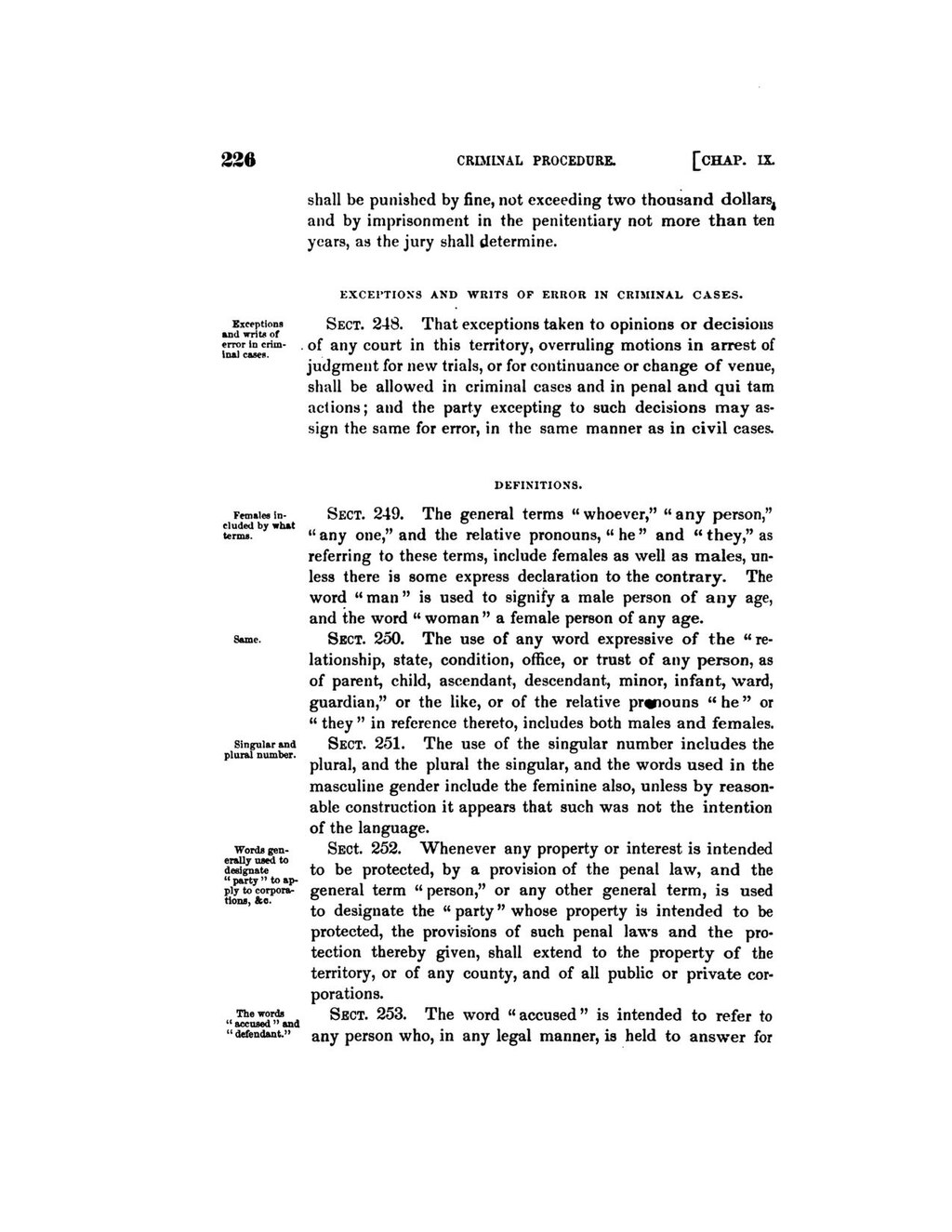shall be punished by fine, not exceeding two thousand dollars, and by imprisonment in the penitentiary not more than ten years, as the jury shall determine.
EXCEPTIONS AND WRITS OF ERROR IN CRIMINAL CASES.
Exceptions and writs of error in criminal cases.Sect. 248. That exceptions taken to opinions or decisions of any court in this territory, overruling motions in arrest of judgment for new trials, or for continuance or change of venue, shall be allowed in criminal cases and in penal and qui tam actions; and the party excepting to such decisions may assign the same for error, in the same manner as in civil cases.
DEFINITIONS.
Females included by what terms.Sect. 249. The general terms "whoever," "any person," "any one," and the relative pronouns, "he" and "they," as referring to these terms, include females as well as males, unless there is some express declaration to the contrary. The word "man" is used to signify a male person of any age, and the word "woman" a female person of any age.
Same.Sect. 250. The use of any word expressive of the "relationship, state, condition, office, or trust of any person, as of parent, child, ascendant, descendant, minor, infant, ward, guardian," or the like, or of the relative pronouns "he" or "they" in reference thereto, includes both males and females.
Singular and plural number.Sect. 251. The use of the singular number includes the plural, and the plural the singular, and the words used in the masculine gender include the feminine also, unless by reasonable construction it appears that such was not the intention of the language.
Words generally used to designate "party" to apply to corporations, &c.Sect. 252. Whenever any property or interest is intended to be protected, by a provision of the penal law, and the general term "person," or any other general term, is used to designate the "party" whose property is intended to be protected, the provisions of such penal laws and the protection thereby given, shall extend to the property of the territory, or of any county, and of all public or private corporations.
The words "accused" and "defendant."Sect. 253. The word "accused" is intended to refer to any person who, in any legal manner, is held to answer for